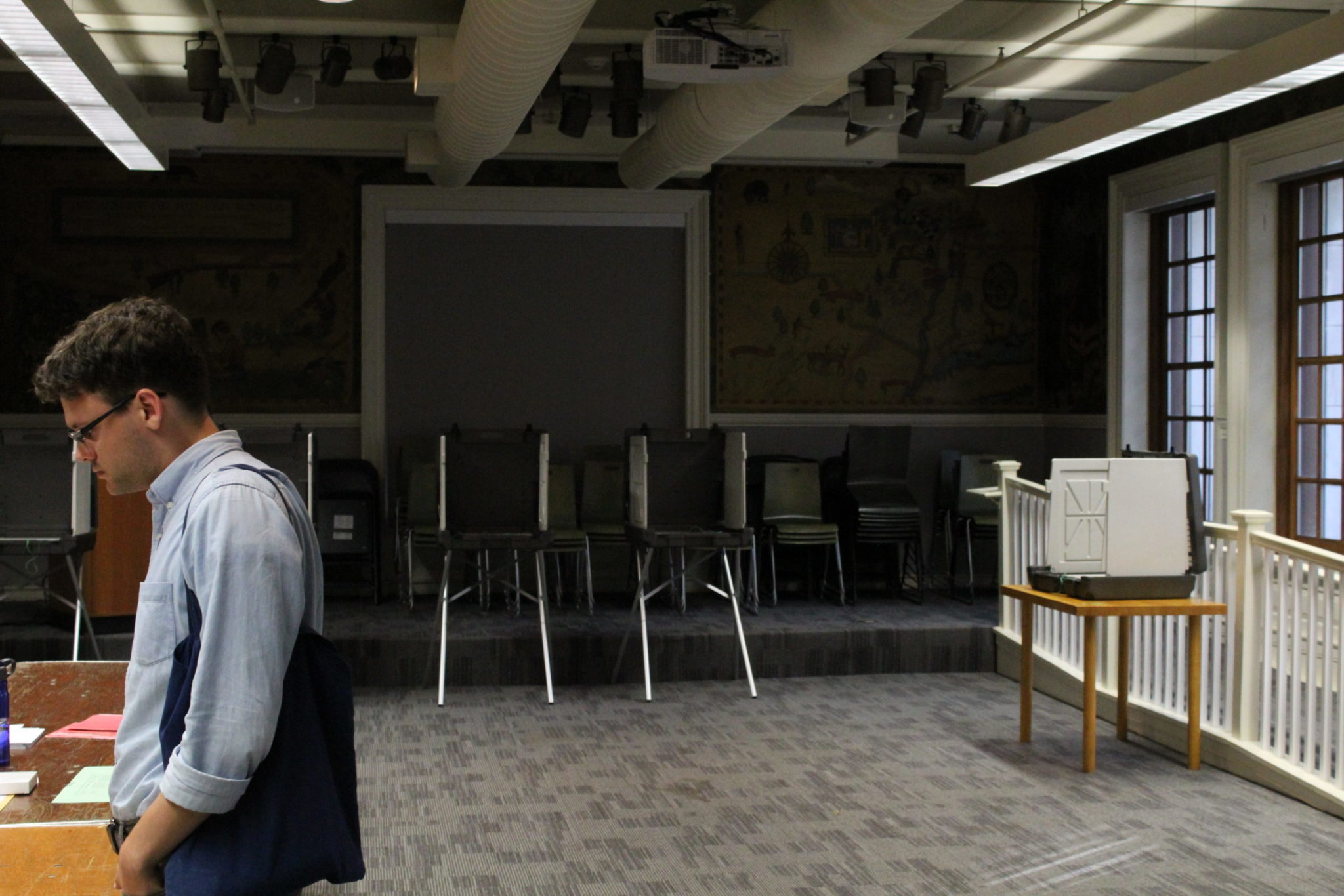New Haven voter turnout for governor sank in 2022
Experts say low turnout due to lack of excitement, low stakes in 2022 Connecticut midterm elections.

Yale Daily News
Democratic voter turnout sank significantly below 2018 numbers in New Haven’s gubernatorial elections last week. But Republican voter turnout mirrored 2018 numbers.
Governor Ned Lamont, the incumbent candidate and eventual winner, lost about 10,000 New Haven voters in 2022 as compared to his 2018 race. Local election experts have a number of theories as to why.
“Democrats were going to crawl across broken glass to vote against Donald Trump, but they were hardly going to break a sweat to vote for Lamont,” said Aaron Goode, founder of the New Haven Votes Coalition. “Two rich guys from the suburbs [Stefanowski and Lamont] weren’t that exciting for New Haveners.”
According to the Office of the Connecticut Secretary of State, 15,822 New Haven Democratic voters turned out for Lamont this year — a drop from when 26,902 Democratic voters turned out for Lamont in 2018.
But New Haven turnout for Republican gubernatorial candidate Stefanowski stayed around the same. 3,704 New Haveners voted for Stefanowski this year, and likewise 4,391 New Haveners voted for Stefanowski in 2018.
Overall, statewide voter turnout for 2022 was 58.59 percent, somewhat lower than in 2018 when it reached 65.23 percent, according to current voter counts from the Connecticut Examiner.
Vincent Mauro, chair of the New Haven Democratic Town Committee, said that lower Democratic turnout was due to a combination of two factors — high polling and low excitement.
Mauro said that in 2018 the polls showed a narrow race between the same two gubernatorial candidates Stefanowski and Lamont. But 2022 polls consistently showed incumbent Lamont leading Stefanowski.
“There’s that ‘I got to get to the polls because every vote is going to count in this election’,” Mauro said. “When the polls keep showing ‘up 12, 13, 14 points,’ people see that and think, ‘Okay, it’s not imperative [I get to the polls]’.”
Mauro also said that New Haveners were more excited for the new candidates in the 2018 gubernatorial race, and less so with the same candidate running for a second term, as in this year’s race.
“People just didn’t think it was going to be a close race,” Mauro said.
Still, New Haveners gave the largest plurality of Democratic votes to the incumbent governor and to Senator Blumenthal compared to any other area statewide. As the chair of New Haven’s Democratic Town Committee, Mauro said that he was generally satisfied with New Haven’s turnout.
“Maintaining that [Democratic] fidelity is very important to the city,” Mauro said. “It reminds people statewide that the path to a statewide victory still includes New Haven.”
Professor Gregory Huber, the chair of Yale’s department of political science, was also not surprised by this year’s turnout numbers in New Haven.
The most contested races in New Haven were for U.S. Senate and Connecticut governor, but both races had Democratic incumbents.
Generally, Huber said, turnout is lower in midterm races. This year’s lower turnout numbers, he added, likely reflected people’s lower interests in the senate and gubernatorial races relative to presidential races, and reflected less strong on-the-ground mobilization efforts by labor and other groups.
If either contest — for Senate or the governor’s office — had been closer, Huber said that he would have expected more efforts to mobilize the urban vote in New Haven.
Even with a New Havener on the statewide ballot, city Democratic turnout sagged. According to Goode, the office of state treasurer — the position that New Havener Erick Russell ran for and won last week — is too obscure to drive turnout for most people.
Goode also pointed to a great deal of turnover in the electorate — given that New Haven is a college town and home to Yale University — and the electorate’s low investment in local elections as factors driving low turnout in 2022.
But, other New Haveners were more concerned with opportunities for higher voter turnout in the future.
Sarah Miller, the New Haven alder for Ward 14, said that the early voting amendment that passed on Election Day was going to be a game changer for her ward.
Last week, voters were asked on Election Day ballots whether the state legislature should enact an early voting regimen. Connecticut was one of four states that currently does not allow early voting. Now, the state legislature will determine the specific rules and regulations surrounding Connecticut early voting.
Miller said that people in her ward and across New Haven have complicated lives, and the extra time given by the new amendment would allow more opportunities to vote, thus driving up turnout in the years to come.
Specifically, Miller said that the more time given to early voting, the better — and the better the turnout.
“You’ll see people in neighborhoods like ours that have concentrated poverty experiencing higher levels of engagement because they have more time and there’s just more accommodation for them,” Miller said.
Election Day in 2022 was Nov. 8.Charlotte Hughes







